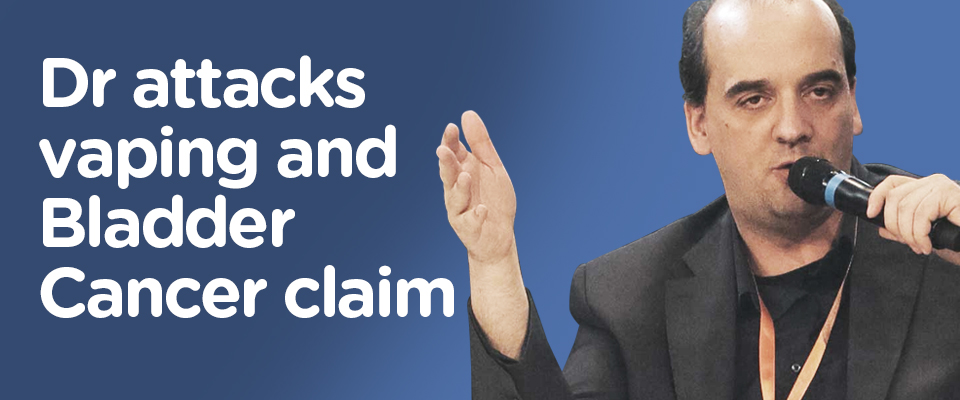A couple of weeks ago, the American Urological Association made headlines after it claimed vaping could potentially lead people to develop cancer of the bladder. Now, an anti-smoking expert has spoken out on the unfounded claims.
Dr Konstantinos Farsalinos heard about the claim and made it clear it was based on no published studies into bladder cancer and vaping. Instead, it was merely mentioned as an abstract at a press conference held by the AUA. The information given in the press conference used data taken from just 13 electronic cigarette users, and 10 people who did not use e-cigarettes. No smokers were included in the group, and it was not confirmed whether any vapers in the study had previously quit smoking.
Two things were noted in the information – the presence of o-toluidine and 2-naphthylamine. It was stated that these elements were seen in higher levels in people who vaped, and who had been diagnosed with bladder cancer. However, Dr Farsalinos pointed out both these markers are also present in the world around us. This means non-smokers can have the markers present too. O-toluidine and 2-naphthylamine are both seen in higher levels in people who have bladder cancer. However, we do not know why this is the case, and there is no indication from the data used that people who vape will have higher levels than those seen in people who do not.
Indeed, Dr Farsalinos pointed out it isn’t even known for sure whether the two compounds are created within the electronic cigarette at all. Clearly, far more research should be done into this before information is presented as fact. As such, it has caused an unnecessary scare that should never have occurred.
Only by examining the aerosols used in electronic cigarettes will we determine whether these compounds are created there. And any future research must include non-smokers, vapers, and smokers in much larger numbers if it is to have any validity at all.
Thankfully, Dr Farsalinos has spoken out quickly against the press conference, and set the record straight. Vaping is still quite new, and while many smokers look on it as the best method for helping them quit, kneejerk reactions, poorly-researched material presented as fact, and other incorrect information does not help.
Let us know whether you heard about the report, and what your thoughts are on it and on the future of vaping.
